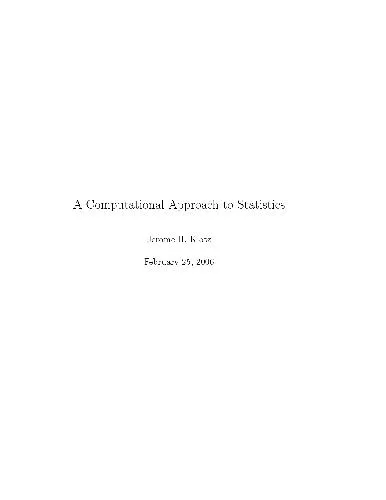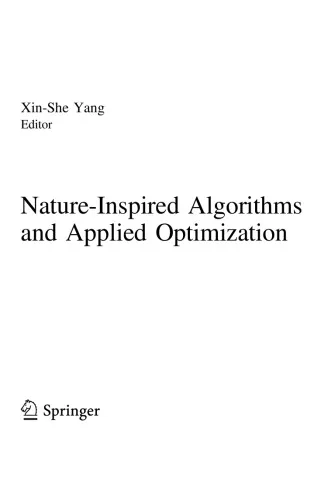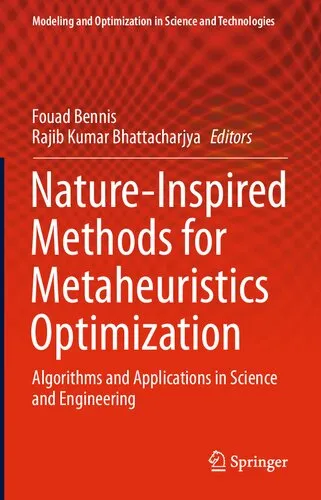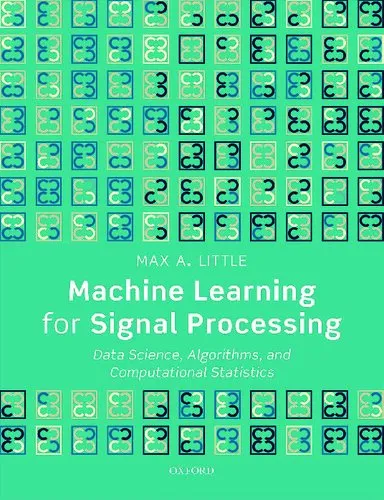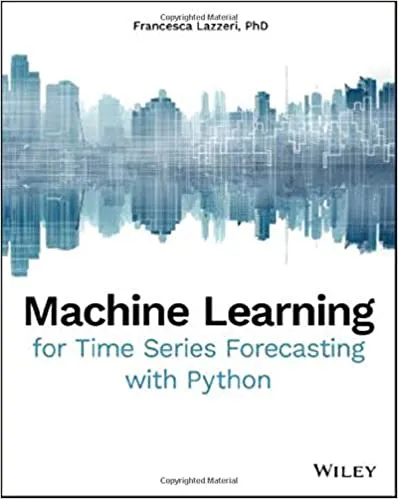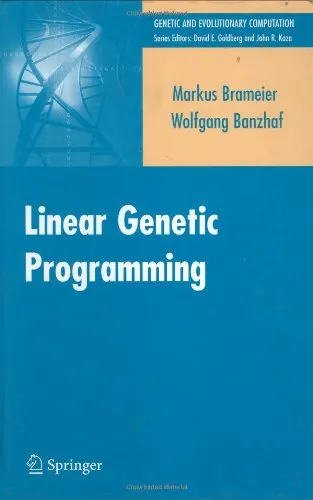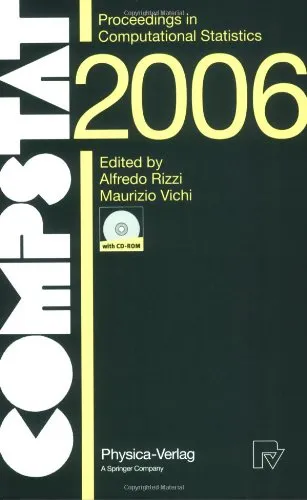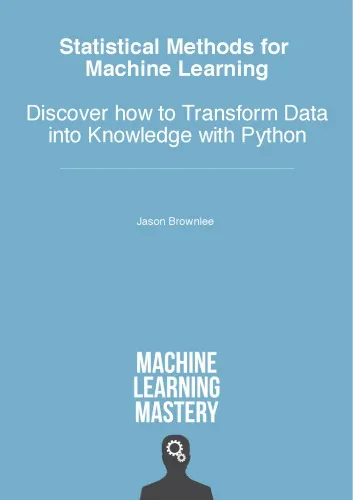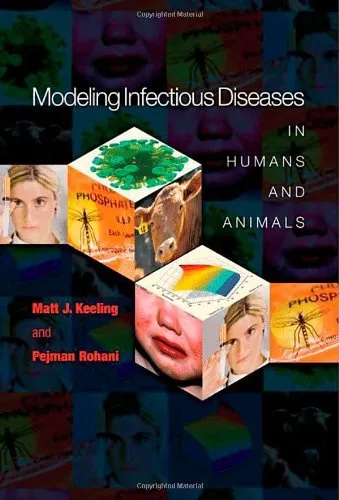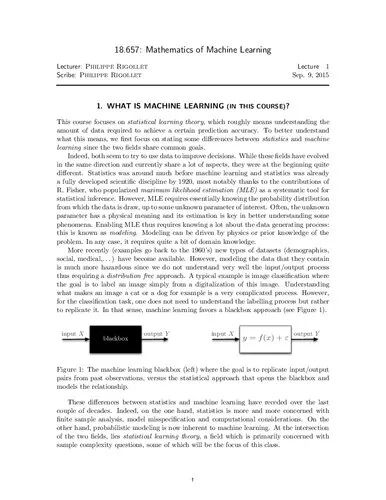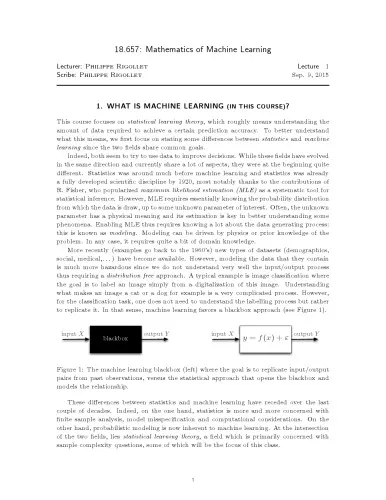A computational approach to statistics
3.5
بر اساس نظر کاربران

شما میتونید سوالاتتون در باره کتاب رو از هوش مصنوعیش بعد از ورود بپرسید
هر دانلود یا پرسش از هوش مصنوعی 2 امتیاز لازم دارد، برای بدست آوردن امتیاز رایگان، به صفحه ی راهنمای امتیازات سر بزنید و یک سری کار ارزشمند انجام بدینکتاب های مرتبط:
معرفی کتاب "A Computational Approach to Statistics"
کتاب "A Computational Approach to Statistics" نوشتهٔ Klotz J.H. یکی از آثار برجستهٔ حوزهٔ آمار است که تمرکز ویژهای بر روی کاربردهای محاسباتی و الگوریتمی در تحلیل دادهها دارد. این کتاب نه تنها اصول پایهای آمار را آموزش میدهد، بلکه نحوهٔ بهکارگیری ابزارهای مناسب برای تجزیه و تحلیل دادهها با کمک کامپیوتر و فرآیندهای محاسباتی را نیز ارائه میدهد.
خلاصهای از کتاب
این کتاب برای دانشجویان، پژوهشگران و حرفهایهایی طراحی شده است که درک عمیقتری از اصول آماری و نحوه اجرای آنها در محیطهای محاسباتی میخواهند. نویسنده با ارائه مباحث کلیدی همچون توزیعهای آماری، آزمونهای فرضیه، رگرسیون، و اصول احتمالات، ابزارهای لازم را در اختیار خواننده قرار میدهد.
آنچه این اثر را متمایز میکند، توجه ویژه به روشهای computational است. با ورود تکنولوژیهای جدید و افزایش حجم دادهها، نیاز به تکنیکهایی که بتوانند به صورت ارتقاء یافته و دقیق بررسی دادهها را انجام دهند، بیشتر از همیشه احساس میشود. این کتاب قدم به قدم نشان میدهد که چگونه میتوان از زبانهای برنامهنویسی مانند R و Python و الگوریتمهای دادهمحور برای کاربردهای پیشرفته آماری بهره برد.
نکات کلیدی کتاب
- ادغام اصول آماری با روشهای computational
- تمرکز بر ابزارهای برنامهنویسی مدرنی مانند R و Python
- توضیح دقیق مفاهیمی چون توزیعهای احتمالی و مقایسه آماری
- ارائه مثالهای واقعی و کاربردی برای تحلیل دادهها
- آموزش نحوه اجرای مدلهای رگرسیون و machine learning ساده
جملات معروف از کتاب
"Statistics is not just a collection of formulas; it is an art of understanding complex data."
"The power of computation allows us to see the hidden patterns statistics alone cannot reveal."
اهمیت این کتاب
در دنیای علمی امروزی، تحلیل دادهها به یکی از مهارتهای حیاتی تبدیل شده است. با پیشرفت تکنولوژی، توانایی استفاده از فرآیندهای computational به معنای واقعی کلمه انقلابی در رشته آمار ایجاد کرده است. این کتاب با بیان شیوا و همراه با مثالهایی کاربردی، این امکان را به خوانندگان میدهد که ارتباط عملی بین آمار و محاسبات را درک کنند و مهارتهای لازم را برای حل مسائل پیچیده آماری به دست آورند.
به طور خلاصه، "A Computational Approach to Statistics" یک منبع جامع و در عین حال کاربردی برای هر فردی است که میخواهد درک عمیقی از آمار و کاربردهای روزافزون آن در دنیای دیجیتال پیدا کند.
Introduction to "A Computational Approach to Statistics"
Welcome to "A Computational Approach to Statistics", a comprehensive guide designed to transform the way we understand and apply statistical concepts using computational tools. Whether you're a seasoned data scientist, a student just beginning your statistics journey, or someone intrigued by the fusion of computation and analytical methods, this book offers valuable insights for everyone. The aim here is not only to teach statistical principles but also to showcase how modern computational platforms can amplify statistical reasoning and problem-solving.
In an era dominated by massive datasets and machine learning algorithms, a computational mindset is essential. Traditionally, statistics has been heavily rooted in mathematical theory and hands-on problem-solving. This book bridges the gap between traditional statistical approaches and the computational power now at our fingertips. By intertwining theoretical foundations with practical computation, this book uniquely positions itself as an indispensable resource for today's data-driven world.
A Detailed Summary of the Book
At its core, "A Computational Approach to Statistics" demonstrates how computational tools such as R, Python, and modern software drastically simplify statistical analysis and expand the possibilities for handling larger, more complex datasets. It breaks down advanced topics into digestible chapters, integrating numerical methods and simulations to solve problems that were previously deemed too tedious or impossible to compute manually.
Starting with basic concepts like probability distributions and descriptive statistics, the book quickly progresses into deeper waters, covering inferential statistics, hypothesis testing, regression analysis, and Bayesian methods. The focus is always on practicality: how can these statistical ideas be implemented programmatically? Through well-documented examples, the book ensures readers can see the step-by-step process of solving problems computationally. Each chapter invites readers to write code, simulate scenarios, and fully engage with the material.
The book also addresses the challenges faced in modern-day statistics, such as handling big data, bootstrapping, Monte Carlo methods, and computational efficiency. By blending theory with computational practice, "A Computational Approach to Statistics" proves invaluable in tackling real-world problems.
Key Takeaways
- Gain a deeper understanding of classical and modern statistical principles through hands-on computation.
- Learn how to use computation to solve statistical problems efficiently, even with large datasets.
- Enhance your proficiency with popular programming languages like Python and R for statistical analysis.
- Explore instrumental computational techniques such as bootstrapping, simulation, and Monte Carlo methods.
- Develop the ability to tackle real-world problems where traditional methods fall short.
Famous Quotes from the Book
"Statistics is not just about computing averages and probabilities. It is about understanding uncertainty in a way that leads to informed decisions."
"In the world of modern data science, computational tools are no longer optional; they are the foundation of practical statistical analysis."
"Often, the hardest problems in statistics aren't solved algebraically—they're solved computationally."
Why This Book Matters
"A Computational Approach to Statistics" stands out as a vital resource in today's data-driven era. As data continues to dominate decision-making in industries ranging from healthcare to finance, the ability to fuse statistical reasoning with computational tools has never been more critical. This book demystifies computational approaches, making them accessible for anyone interested in blending statistics with programming.
Furthermore, the increasing availability of large datasets means that traditional statistical tools alone are no longer sufficient. This book empowers readers with the knowledge and skill set needed to navigate this changing landscape. By fostering a computational perspective, it encourages not just understanding, but also innovation in how we approach statistical challenges.
Ultimately, this book matters because it modernizes statistics for the 21st century, equipping the next generation of statisticians and data scientists to tackle increasingly complex problems with confidence.
دانلود رایگان مستقیم
شما میتونید سوالاتتون در باره کتاب رو از هوش مصنوعیش بعد از ورود بپرسید
دسترسی به کتابها از طریق پلتفرمهای قانونی و کتابخانههای عمومی نه تنها از حقوق نویسندگان و ناشران حمایت میکند، بلکه به پایداری فرهنگ کتابخوانی نیز کمک میرساند. پیش از دانلود، لحظهای به بررسی این گزینهها فکر کنید.
این کتاب رو در پلتفرم های دیگه ببینید
WorldCat به شما کمک میکنه تا کتاب ها رو در کتابخانه های سراسر دنیا پیدا کنید
امتیازها، نظرات تخصصی و صحبت ها درباره کتاب را در Goodreads ببینید
کتابهای کمیاب یا دست دوم را در AbeBooks پیدا کنید و بخرید
1335
بازدید3.5
امتیاز0
نظر98%
رضایتنظرات:
3.5
بر اساس 0 نظر کاربران
Questions & Answers
Ask questions about this book or help others by answering
No questions yet. Be the first to ask!
